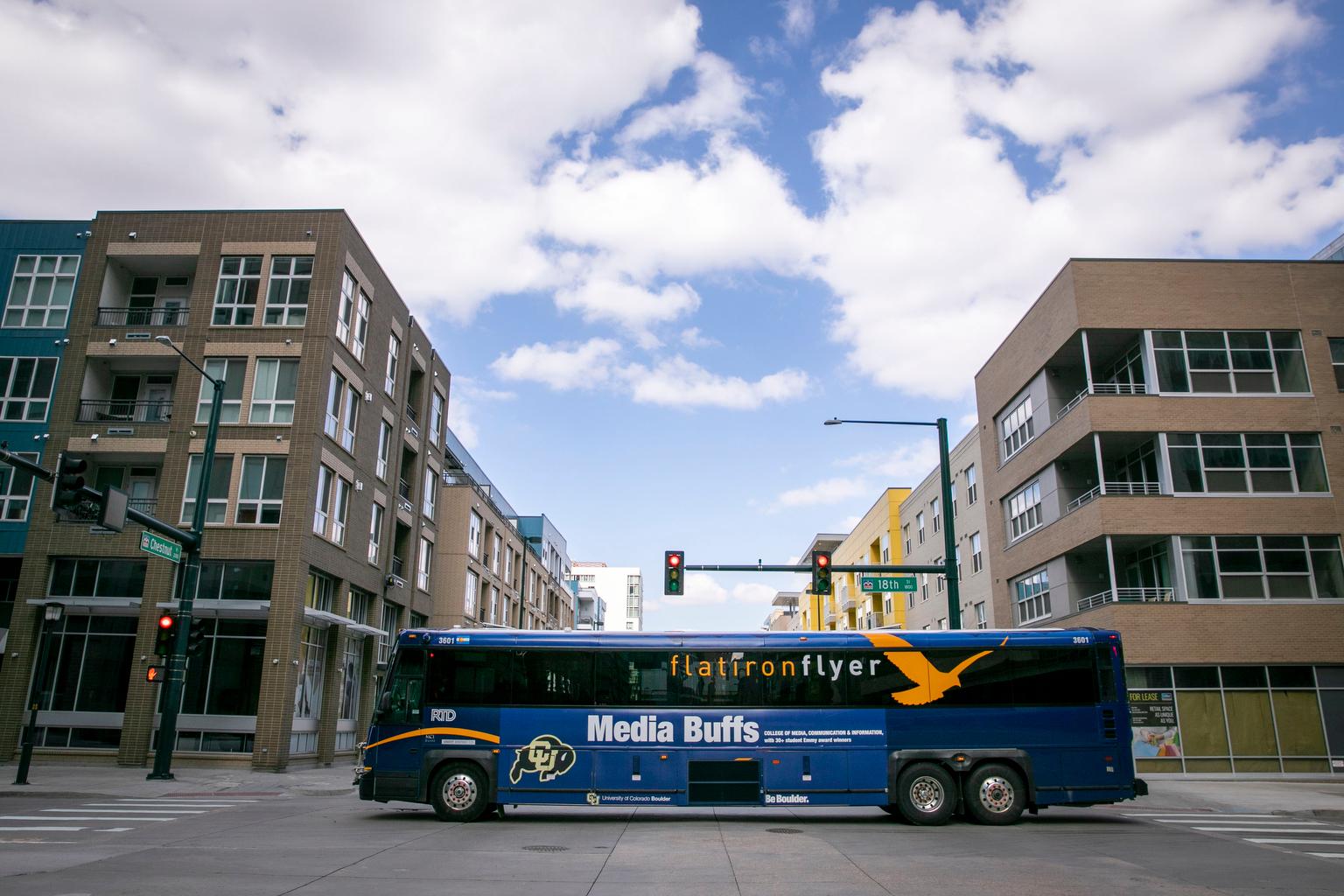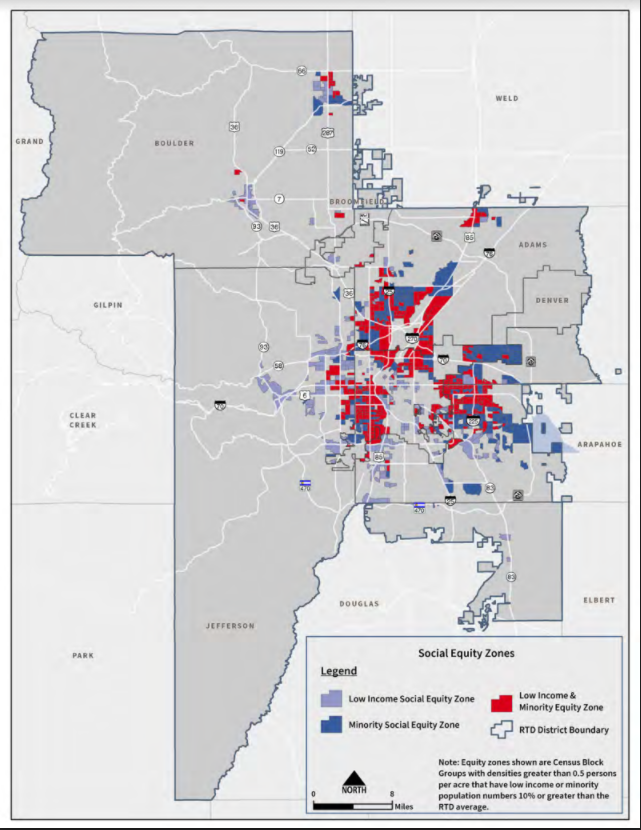
The Colorado Department of Transportation says it will pass along $34 million in federal relief money to The Regional Transportation District to restore more transit service — if RTD spends it on service in Boulder and Longmont.
CDOT officials say the money must be used to restore express buses between Denver and Boulder and Denver and Longmont through the Flatiron Flyer 2, 4 and LX1 and LX2.
Since U.S. 36 between Denver and Boulder was rebuilt with transit-supportive infrastructure in the mid-2010s, ridership boomed on the Flatiron Flyer express buses with more than 13,000 riders a day. The COVID-19 pandemic slashed that to about 2,000 a day.
Now, CDOT Executive Director Shoshana Lew wrote in a letter to RTD, is the time to expand service there and rebuild demand. The department wants to replicate the U.S 36 success elsewhere in its effort to reduce climate-warming emissions.
“At this critical moment, the absence of this service is especially glaring — especially given the extent of funding available specifically to support the recovery of the transit sector,” she wrote.
The money would come from the federal American Rescue Plan. CDOT controls that stream of federal funding for transit service in small urban areas, including Boulder, Longmont and Lafayette-Louisville-Erie.
CDOT gave RTD a deadline of Friday to accept the terms of the letter. The Federal Transit Administration told CDOT earlier this month that it must allocate the $34 million by Oct. 31 or it could withhold more federal grants this fall.
Local governments in the northwest corner of the Denver metro have also pushed RTD to sign an agreement that would ensure more transit service there. RTD also received dozens of requests from riders for Flatiron Flyer service.
An RTD spokesperson said CEO Debra Johnson has not yet reviewed the letter. But RTD staff told its board this week that it still doesn’t have enough bus drivers to restore more service.
“Our operator situation is very, very real,” said Jessie Carter, RTD’s acting senior manager of service development. “If we had a choice at this point in time, we’d turn on a number of services.”
Federal rules also require RTD to ensure that any significant changes in service do not have disparate effects on low-income and minority populations. Throughout the pandemic, RTD’s riders were more likely to be low-income or minorities. The agency tailored its cuts to affect those groups the least.
The Flatiron Flyer along U.S. 36 does not serve many low-income or minority residents, Carter told the board. Additional service in those areas would also have to coincide with more service in other areas with more minority and low-income people, he said.

Several iterations of the Flatiron Flyer are still operating, Carter added.
“It’s really hard for us to say this area ... needs additional branches added back, while we still don’t have service in other areas,” he said.
Several board members from Denver, including Shontel Lewis, Kate Williams and chair Angie Rivera-Malpiede, mentioned the concerted effort from northwest-area leaders and contrasted it with their own constituents.
“In my community, which is the transit-dependent and the working poor, they don’t have a voice usually. Because they are too busy surviving,” Rivera-Malpiede said. “They don’t have time to write letters, they don’t have time to come to meetings, they don’t have time to call board members.”
“The fact that some of our constituents are well educated and well organized, fortunately, doesn’t mean that they get more service than those of our constituents that we don’t hear from that much,” Williams added.
Gov. Jared Polis, who appointed Lew and controls CDOT, is a Boulder resident. When asked if that factored into CDOT’s letter to RTD, Lew replied, “No.”
Polis has pressured RTD to fund the long-delayed commuter rail line to Boulder. He told Colorado Matters this spring that RTD needed “reform, not money.” A Polis-backed transportation law signed this year will generate billions of dollars with no new dedicated revenue for RTD.









